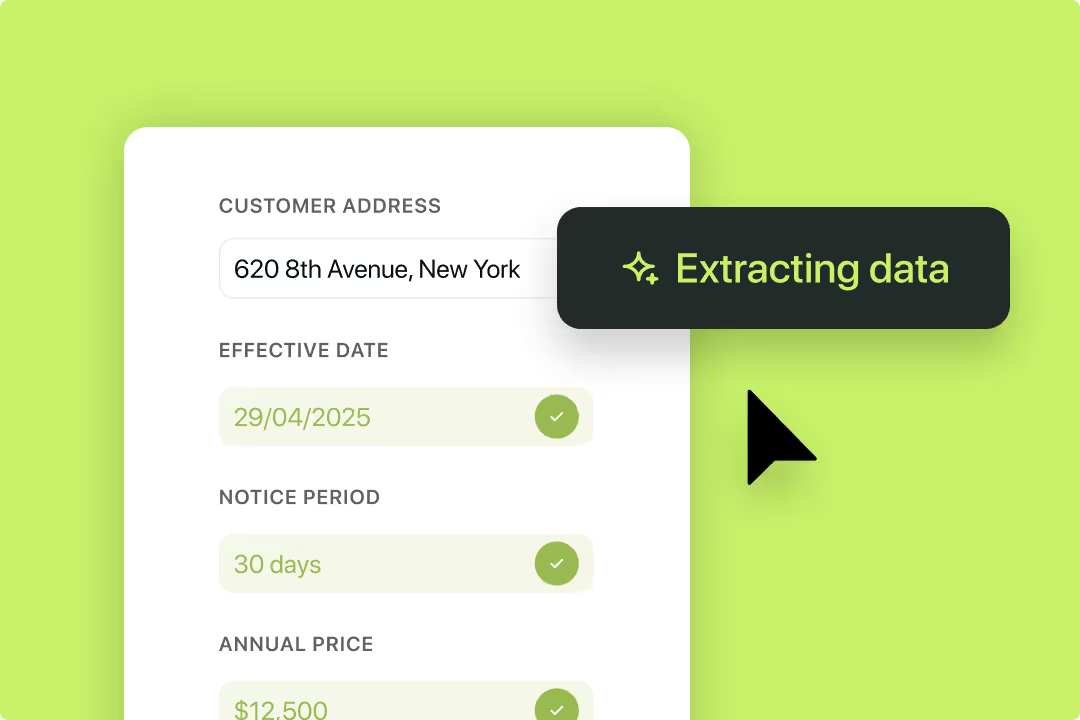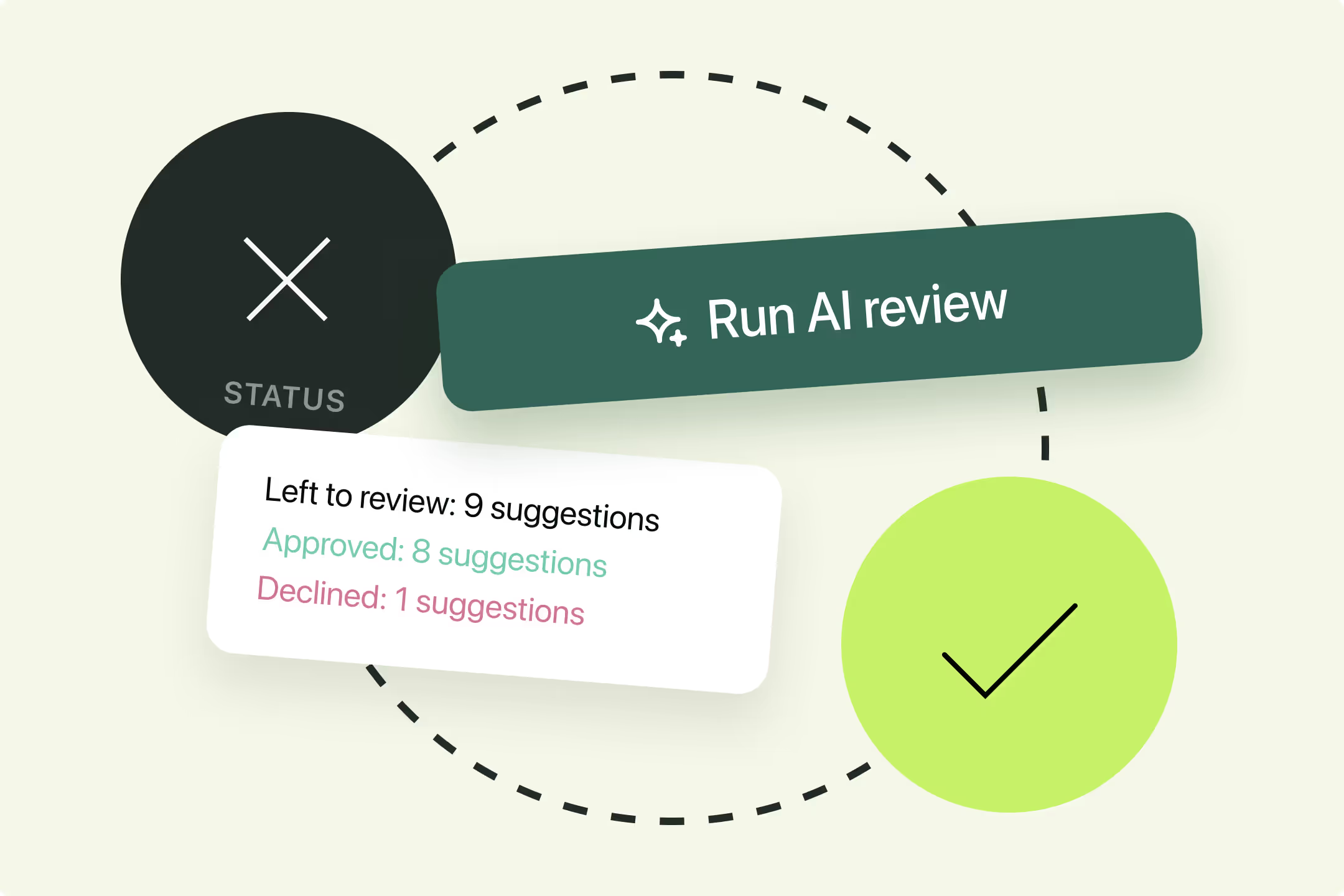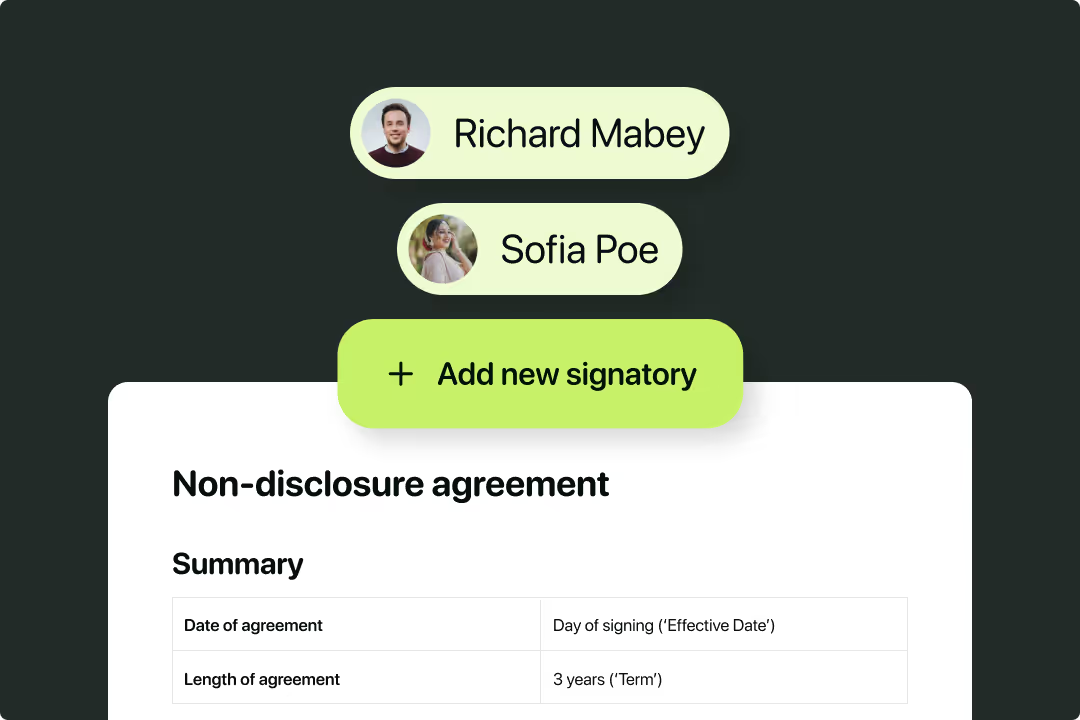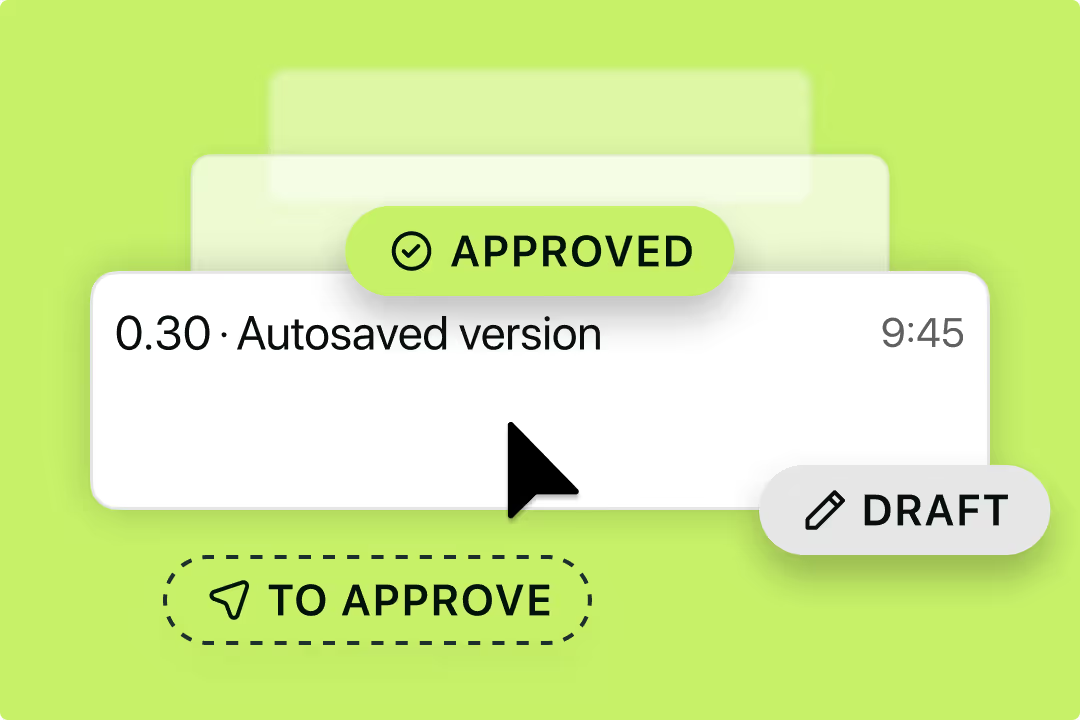Solutions
Customer Support
Resources
Contract intelligence software promises faster review times, advanced contract analysis, and cutting-edge legal automation. In other words, contract intelligence software empowers businesses to do more with less.
This post explains what contract intelligence actually is, how it works, what you can gain from it in 2026. Read on to find out more.
Contract intelligence is the process of transforming static legal agreements into a source of intel. This contract data is then used to inform business decisions and assess risk within contracts.
Contract intelligence software is distinct from many traditional contract lifecycle management tools as it uses AI capabilities to extract and summarize this information.
In fact, contract intelligence software is one of the most popular forms of contract AI because it empowers legal teams to capture and manage data from contracts qucikly and efficiently, with minimal admin work required.
Contract intelligence technology uses artificial intelligence to identify patterns within contracts. These learnings train the software’s algorithm, enabling the technology to automatically identify and extract specific data, automate the drafting process, and review contracts rapidly.

For example, JP Morgan’s contract intelligence tool relies on machine learning and AI to break down different components of a contract’s wording. It then uses AI to interpret the contracts’ outcomes and risks. This work would otherwise be completed manually by lawyers, and it’s estimated that the software can automate up to 360,000 hours of finance work in seconds.
Juro is another example of a contract tool that offers contract intelligence. Juro's legal AI allows teams to draft, review and summarize contracts using AI. For example, Juro users can ask the AI assistant to identify the key legal risks within a document based on your contract playbook.

The biggest difference between contract intelligence and contract management is that contract intelligence uses artificial intelligence to analyze legal documents. Contract management software, by comparison, is programmed using code and not trained using machine learning.
This means that contract intelligence platforms are learning continuously and can be trained to achieve specific outcomes. As a result, there’s often greater flexibility around what contract intelligence software can do.
It's important to recognize that certain contract tools can fall into both categories, though. These tools are also known as AI contract management software, or AI-enabled CLMs.
For example, Juro is an all-in-one contract management platform that streamlines the entire contract lifecycle for legal and business teams, from contract drafting through to negotiation and post-signature contract management.

However, Juro also has an AI legal that can automate contract intelligence tasks. This means that Juro users can benefit from AI capabilities and end-to-end contract management functionality, all in one unified workspace.
The result? Businesses that use Juro can agree contracts up to ten times faster than they can with traditional tools.
To find out more about how this works for businesses like yours, hit the button below to book a personalized demo. To find out more about contract intelligence, read on.

One benefit of implementing contract intelligence software is that it speeds up contract review and analysis. It does this by automating admin tasks usually completed by busy in-house lawyers.
KPMG estimates that an inefficient contracting process can result in value leakage of up to 40 per cent of a contract’s value. Contract intelligence software can reduce this leakage and minimize revenue loss in turn.
Contract intelligence software also enables businesses to manage large contract volumes more efficiently.
Since it seeks to automate every stage of the contract workflow, it removes the need for in-house legal teams to review individual contracts, chase a contract’s progress, and switch between platforms to make edits or input data.
This empowers businesses to develop contract management processes that scale with their business, not hold them back.
{{quote1}}
Contract intelligence platforms are designed to make contract data extraction and analysis simple, improving the visibility that legal and business teams have into their contracts.
Without software in place, this analysis would typically be completed by a contract manager or contract administrator. Or, in some cases, it would be neglected altogether.
Automating this contract analysis gives businesses instant access to actionable insights about their contracts and the data within them. These insights can help to inform future negotiations and strategic decisions.

The benefits of contract intelligence sound great in theory. But in practice, it’s common for contract intelligence platforms to overpromise and underdeliver. There are numerous limitations of contract intelligence that in-house legal teams should be wary of:
Contract intelligence platforms aren’t only a mission to implement, they can also be difficult to use. This is because contract intelligence typically offers far more complex functionality than other modern contracting solutions. This, in turn, makes it more confusing for users.
This can be problematic and hinder adoption within businesses seeking to enable commercial teams to self-serve on contracts. If a contract tool isn’t easy to use, teams will resort back to manual processes, which means the hefty sums invested in contract intelligence often go to waste.
This isn't true of all contract intelligence tools, though. Juro's off-the-shelf contract management platform is easy to use and implement. This is echoed by independent reviews of the platform:
"I love Juro's ease of use! Its so clear on how to use the platform and therefore it's easy to configure and get team buy in to use the platform!" - Verified Juro user, G2 review
"Juro is intuitive, thorough and has created a user-friendly tool that anybody on our commercial team can use, with or without legal background" - Verified Juro user, G2 review
Within a traditional contract workflow, it’s usually the lawyers that have concerns about the standardization and content of business contracts created away from their watchful eye.
With contract automation in place, this can usually be prevented with the use of contract templates, conditional logic, and approval workflows to ensure that legal still has full control over contracts.
By introducing AI into the mix, contract intelligence software removes this focus on human input from the legal team and relies on the software’s ability to learn from patterns and experience instead. Since there’s no guarantee of accuracy, this can create uncertainty amongst legal teams.
That said, there are a few things you can do to minimize errors and ensure the results you receive from the tool meet your expectations, like adding your contract playbook, or refining your prompts. Lots of these tips are covered in this guide to ChatGPT for lawyers.

If you're wondering whether to invest in contract intelligence software, we have some advice.
Firstly, remember that not all tools are born equal. Some contract intelligence solutions will perform better (and more accurately) than others. Certain tools will also focus on certain stages of the contract lifecycle, like AI contract review software. Others, like Juro, will add value throughout.
Those that make your processes faster and more efficient will almost always be worth it, especially if your current processes are extremely manual and slowing down your company's growth.
Juro enables your team to create, execute and manage contracts up to ten times faster. To find out more about how Juro works for businesses like yours, check out our case studies or hit the button below to book a personalized demo.
Lorem ipsum dolor sit amet, consectetur adipiscing elit. Suspendisse varius enim in eros elementum tristique. Duis cursus, mi quis viverra ornare, eros dolor interdum nulla, ut commodo diam libero vitae erat. Aenean faucibus nibh et justo cursus id rutrum lorem imperdiet. Nunc ut sem vitae risus tristique posuere.

